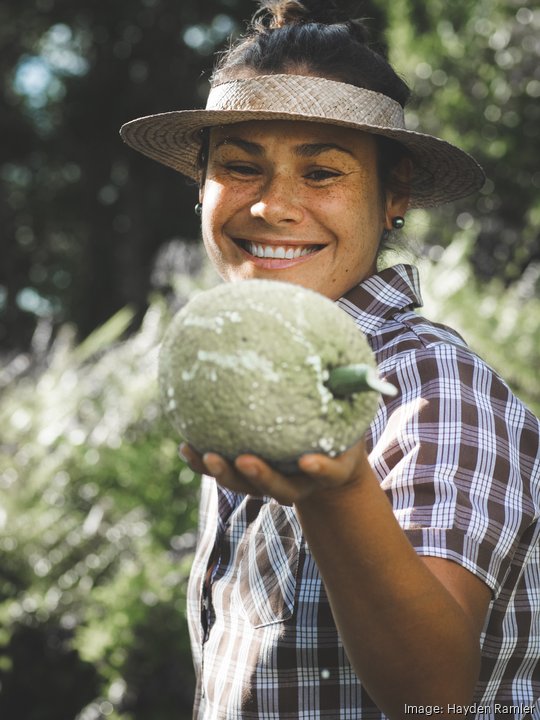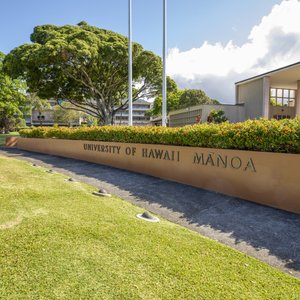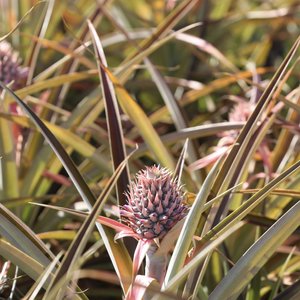
When Kālisi Mausio and her sister, Angela Fa‘anunu, won a lease for agricultural land through Kamehameha Schools’ Mahiai Matchup competition, they wanted to create opportunities for their Kaivao Farm, which is located outside of Hilo and specializes in ulu.
But when they looked into agritourism, they “quickly saw many gaps in the industry whereby local farmers were not benefiting enough from [tourism], Hawaii’s largest sector,” Mausio said.
“We could see a big disconnect on the ground between small family farms and visitors.”
In an effort to remedy that, the sisters developed Hawaii Farm Trails as “a digital one-stop shop for all agritourism operators to be discovered easily,” as Mausio describes it. The app and website feature a list of farms and ranches, as well as farmers markets and other events, with information on tours, tastings and other activities available at each site.
Since its launch in 2019, Hawaii Farm Trails has grown into a multifaceted enterprise that also includes the Onomea Farm Hub, which provides resources to farmers including marketing support, event space and co-packing facilities. The hub also has a market and cafe that feature goods from its network of local food producers.
Another initiative for Hawaii Farm Trails is Project Kanu, which helps local farmers establish agroforests through collaborations with hospitality industry partners. Hotels, car rental companies and airlines can contribute to a fund that goes toward helping farmers cover costs, and individual visitors can purchase carbon-sequestering food trees for farms. Mausio said the project will offset carbon emissions and support local food security, and the partners will be able to track the impact that their contribution has.
“It establishes a model where we are presenting a sustainability service to the hospitality industry … to help [the farmers] develop an agroforest. This is a way for the tourism industry to contribute to agriculture to give back and to offset their carbon [emissions] … and a way for [farmers] to benefit from the tourism industry,” she said.
What has been your strategy in growing Hawaii Farm Trails so far? The strategy has been really focusing on creating shared value. This business is a social enterprise, so I am using it to build social and economic development for the community. When I keep that model in mind and share my narrative, it really helps to open up opportunities — it helps pull in funding sources and gives us a competitive edge. Grant funding has been a big part of [the growth], and partnerships are now becoming a bigger part — having trusted relationships with Kamehameha Schools, Hawaii Tourism Authority, Hawaii Ulu Co-op, and [local startup] accelerators. We’ve built a reputation and energy around what we are doing, and we are building on that now to be a lot more [strategic] and going after opportunities and pitching ideas.
What are your main sources of funding? This year our retail revenues have caught up to our grant funds, so it’s about 50/50. Next year we hope to surpass that and become more financially independent of grants.
What accomplishment are you most proud of to date? I see many small businesses closing up shop and honestly, I’m just really proud to be keeping an impactful regenerative enterprise alive and owning 100% of it. This past year was also significant because I became a boss for the first time, and though being a leader is extremely difficult, I’m proud of the team that I have built and what we’ve been able to accomplish together.
What’s a leadership lesson you’ve learned? It’s an ongoing process of learning. Being an entrepreneur, you very quickly gain an understanding of what you are good at and what you are not good at. And I’ve learned I am not so good at communication. So, what I have done is hire the person who does it right. Hiring the right talent to be able to help lead the team has kept us going.
What are your plans moving forward? This year, one of our main goals is to double our retail revenue. We just started selling alcohol [at the market and cafe], so that is a new revenue stream that we will use to enhance our farm-to-table offerings. ... Part of what the hub does is pop-ups, and we plan on having more event-based attractions, so we are going to attract more customers that way and have people start to recognize our hub as a place to go to.
… Another goal is to release Hawaii Tasting Trails. It’s a business model component that we are going to build into [Hawaii Farm Trails] to be able to facilitate bookings in the platform. We will get a cut of the bookings as well and provide a paid level [of membership] to the farmers … where they can have their farm be more actively promoted by us.
We also want to expand Project Kanu. I’m taking the next step of scaling it and working with the farmers to understand what is the best step forward. … We are in our pilot phase now with our first hotel and our first pilot farm. The hope is that it will be a full circle process where we are working with farmers to establish their agroforest, but we are also providing a market for them. … It’s really exploratory at the moment, but the point is to be able scale it where the more clients we work with, the more we will be able to support farmers.
Hawaii Farm Trails
Kālisi Mausio, founder and chief executive farmer
Email: aloha@hifarmtrails.com
Website: hawaiifarmtrails.com







